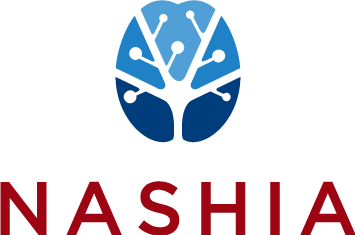In keeping with federal and state program requirements calling for survivor centered planning as a critical component to the delivery of brain injury services and supports, this 3-part webinar series has been developed to address these questions:
What is survivor centered planning and survivor centered thinking?
What are strategies for discovering information, interests and goals of individuals with brain injury?
How do you turn these plans into reality?
Learn how this planning and on-going problem-solving process helps individuals with brain injury to plan for their future, develop personal relations, participate in the community, access resources and accommodations needed to achieve these goals, and to increase control over their lives.
Webinar 1: An Introduction to Survivor Centered Thinking
May 17, 2018, 1.0 hour
Overview:
This webinar will provide an overview of the general concepts of survivor-centered thinking and how it differs from survivor centered planning. Learn how everyday thinking can create a foundation for change and action that empowers and impacts the individual, as well as organizations and systems.
Objectives:
Participants will:
Receive an overview of the foundations of Survivor Centered Thinking.
Understand the value of Import TO/Important FOR concepts.
Hear/see examples of how people are utilizing PCT in their lives.
Hear/see practical examples of how PCT is having positive impact in people's lives.
Presenter:
Lisa Meyer, Consultant
Supporting Materials:
View the slide deck.
Relationship Map
Good Day/Bad Day
Blank Communication Chart
Blank Learning Log
Matching People Supporting Blank Handout
One Page Profile
Three Panel Landscape
How Best to Support Me at Work: One Page Description
Webinar 2: From Survivor-Centered Thinking to Creating the Plan
May 31, 2018, 1.0 hour
Overview:
This presentation highlights the documentation elements of survivor-centered planning. Beginning with the assessment, to reaching some understanding of the data and the person, all leading to informing the plan development will be covered. A clear description of the definitions of goals (outcomes), objectives and interventions (services) will be provided.
Objectives:
Understand the importance and value of the narrative summary
List three elements of a Survivor Centered Recovery Plan and define them.
List two (2) reasons why personally defined goals are important to know and document.
Describe how survivor-centered planning acknowledges medical necessity and rigorous clinical documentation; and where it can be found in the plan.
Presenter:
Diane M. Grieder, MEd, Consultant, AliPar, Inc.
Webinar 3: Applying Survivor Centered Planning and Thinking Principles in the Delivery of Supports & Services for Persons Living with a Traumatic Brain Injury
June 7, 2018, 1.0 hour
Overview:
This presentation will provide tips and tools for adapting survivor centered planning and thinking approaches when working with individuals who are living with a history of brain injury. Encouraging choice and autonomy is important in the development of meaningful goals and the application of strategies and accommodations critical to reaching goals for work, home and community life.
Objectives:
Participants will:
Describe the essential differences between the medical model approach to treatment and services and the survivor centered approach;
Utilize a tool to assess the level of survivor centered practices of programs and services; and
Apply tools and strategies to enhance their program's survivor centered competency in terms of staff approach to service delivery in a survivor centered manner.
Presenter:
Anastasia Edmonston, MS, CRC
TBI, MH First Aid & PC Trainer
Maryland Behavioral Health Administration
Supporting Material:
View the slide deck.
Survivor Centered Planning Questionnaire -TBI Waiver Provider Version
Questions? Contact training@nashia.org
